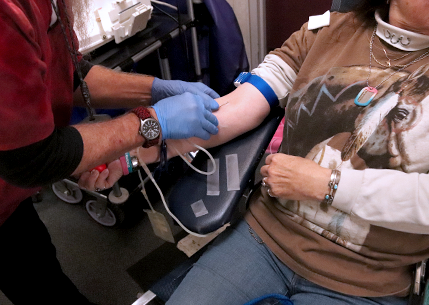Social media impacts self-esteem and body image
Social media provides constant exposure to the lives of peers through photos, shares, likes, and status updates. With the constant exposure comes constant chances for people to judge, scrutinize and compare themselves to others. With the extra pressure of creating and maintaining an online presence, social media can lead to unhealthy levels of obsession with body image.
Social media sites are a mainstay of American culture with close to 90 percent of internet users in the U.S. visiting a social media site at least once a month according to Comscore, an internet analytics company. Social media gives people the opportunity to present an often falsified best version of themselves. They post flawless filtered pictures and update their status with news about their seemingly flawless lives. With the natural tendency to measure accomplishments against others, individuals can feel depressed when judging themselves against the idealized versions of people online.
“There’s so many fake accounts now…You can see people in person and they don’t look anything like [their profile picture],” said freshman Jaydon Brouillard who believes people devote too much time being on their phones and on social media sites.
Comparing your life to the idealized presentation of someone else’s life on social media is like comparing yourself to a celebrity. It’s an unattainable goal because no one in real life is flawless or always partying in Cancun as some social media profiles can portray.
“Social media makes showing off, complaining, and idolizing the human body much easier. If someone were to see a picture of someone ‘better’ looking than them, they may feel as though that’s how they should look…You see people flaunting their appearance on the Internet constantly, which might cause you to feel self conscious,” said sophomore Jacob Bausch who’s active on the popular social media sites Facebook, tumblr, and Instagram.
Studies have linked frequent social media use with negative self image and body dissatisfaction. A survey by British charity Anxiety UK in 2012 discovered that 53 percent of its 298 participants felt social media had altered their behavior and 51 percent of them said the change in behavior was negative leading to lack of confidence according to medicalnewstoday.com.
“Social media can cause girls to feel like they need to be a twig and have a thigh gap…[Seeing filtered or altered images] causes you to want to be perfect like that. You want people to comment on your picture ‘Oh you’re so beautiful’ and [for it] to get a thousand likes,” said junior Kristen Thompson who believes the unrealistic body type portrayed frequently in media can be damaging.
During adolescence and teen years, the desire for validation is stronger than ever. By the time girls reach junior high, 40-70 percent of them are unhappy with their bodies and their self-esteem typically doesn’t noticeably improve until age 20 according to NYC Girl’s Project. Social media proves the perfect stomping ground for kids to seek out the approval of their peers by asking for “Rate and Date” scores and “truth is”. Seeking out the opinions of others can lead to unhealthy, critical self and peer evaluation. While bettering yourself is a healthy attribute, the constant need for approval bread through the very nature of social media site with “likes”, “loves”, “retweets”, “karma”, “notes” and other forms of cyber approval is unhealthy and destructive to self esteem.
“I have 1000 followers on tumblr and I know that friends and I will compare amount of followers, notes, messages received and such. Also, I know that when I get less than 50 likes on Instagram I feel like I have disappointed people with what I put there,” Bausch said.
While social media sites can be damaging, they are vital resources for human communication and can spread awareness about pressing issues. If people post and share genuine photos and endeavor to promote healthy body types and lifestyles, social media sites can be a place that fosters rather than destroys self-esteem. The responsibility of keeping social media sites healthy lies with both the posters and the followers.






